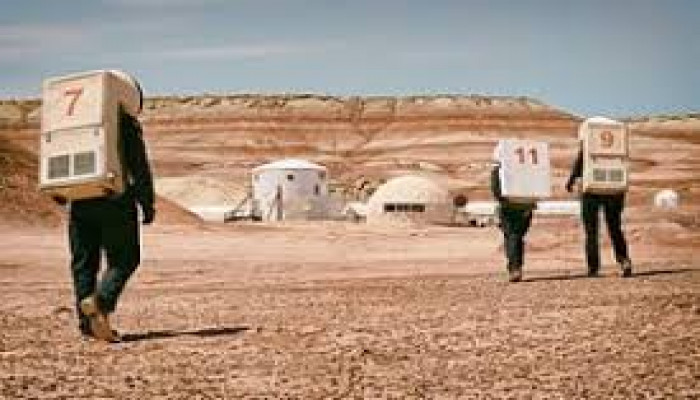Ladakh to host India’s inaugural Mars and Moon analogue research station
- In Reports
- 10:39 PM, Aug 02, 2024
- Myind Staff
In a notable development for India's Mars mission, scientists from the Indian Institute of Science (IISc) and the Birbal Sahni Institute of Palaeosciences (BSIP) have chosen Ladakh as the ideal location for the first Mars and Moon analogue research station. This type of research station is designed to simulate conditions for Moon and Mars missions, enabling the testing and construction of astronaut habitats due to the area's geological resemblance to extraterrestrial environments. Additionally, the facility will facilitate the study of how microbes and other organisms respond to these extreme conditions, as detailed in a recent report.
The research, led by Binita Phartiyal from BSIP, Aloke Kumar from IISc, and Shubhanshu Shukla — one of India’s four Gaganyaan astronauts — is part of India’s expanded space program. This effort aligns with the country’s broader goals, including the establishment of a space station by 2035 and a Moon landing by 2040.
The daily report by lead authors Phartiyal and Kumar noted Ladakh's distinctive geographical features closely resemble Martian and Lunar landscapes. The region's cold, arid desert, rocky terrain, and geomorphological similarities to early Mars and the Moon make it an ideal location for simulating extraterrestrial conditions. According to Phartiyal, Ladakh serves as a natural laboratory for testing equipment, training personnel, and performing crucial scientific research, offering geochemical, geomorphological, and astrobiological parallels to Mars and the Moon.
Phartiyal, who has been researching Ladakh almost annually since 2000, described the experience as feeling like being on another planet. She also took part in NASA’s Spaceward Bound India program in 2016, which emphasised Ladakh’s high-altitude ecosystem for its Mars-like topological characteristics.
The proposed research station would fulfill several key roles: serving as a testing ground for space technologies, advancing Technology Readiness Levels (TRL), facilitating engineering integration, conducting human studies and crew training, and supporting geological and astrobiological research. Establishing this facility would significantly strengthen India’s space program, particularly its human spaceflight initiatives and future Mars missions. Additionally, it would provide valuable opportunities to study extremophiles and perform comparative research with samples from India’s polar research stations.
Kumar emphasised that now is an ideal moment for India to align with the global community in establishing analogue research stations. He pointed out that this initiative would enhance the space program, foster astro-tourism, and benefit local communities in Ladakh. This proposal builds on India’s recent achievement of inducting four astronaut designates, reflecting its growing dedication to space exploration. As India aims to become a significant player in the global space sector, the Ladakh analogue research station could play a pivotal role in advancing its extraterrestrial goals, serving as a crucial resource for scientific research, technological innovation, and astronaut training.
Last week, it was reported that India is preparing to send an astronaut to the International Space Station (ISS). Space Minister Jitendra Singh announced in Lok Sabha that an Indian astronaut, termed a “gaganyaatri,” will soon journey to the ISS as part of a mission in collaboration with the Indian Space Research Organisation (ISRO), NASA, and Axiom Space.
In response to a query from Trinamool Congress MLA Saugata Roy, Singh provided details that the joint mission will involve one ISRO astronaut traveling to the ISS, as reported by The Times of India. This collaboration has been formalised through a space flight agreement with Axiom Space. NASA confirmed that the mission, designated Axiom-4, is scheduled to launch no earlier than August 2024 from Kennedy Space Center in Florida.
The astronaut selected for the ISS mission will be one of four Indian Air Force (IAF) pilots who are currently training for ISRO’s Gaganyaan mission. These astronauts, chosen by ISRO’s Astronaut Selection Board, completed basic spaceflight training in Russia during the COVID-19 pandemic and are now continuing their training at ISRO’s astronaut training facility in Bengaluru.
Image source: The Earth News







Comments